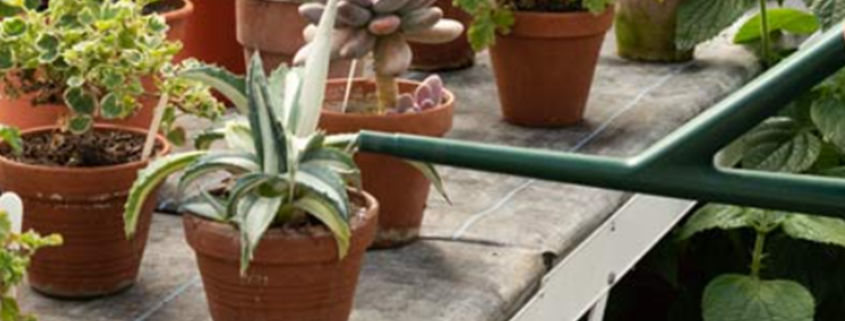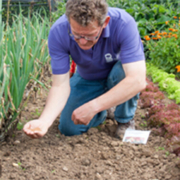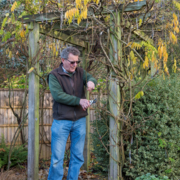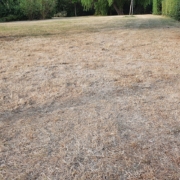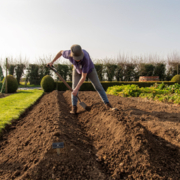April Gardening Tips
April Gardening Tips: The team at Barnsdale Gardens have a fountain of knowledge when it comes to gardening and always enjoy sharing tips.
Many aspects of caring for the 38 individually designed gardens in the East Midlands can easily be transferred to home gardens everywhere!

April Gardening Tips
Water Houseplants
Houseplants are becoming ever more popular and are ideal for those who do not have an outside growing area. Now that they are starting to grow you can begin to water houseplants a bit more, as they will need the moisture to grow. However, take it easy, houseplants do not like to be too wet!
Spray Against Rose Black Spot
To get on top of this problematic disease that affects roses, spraying needs to be started as soon as the leaves start to emerge. The Barnsdale Gardens team use an organic mix of skimmed milk and water at a ratio of 10:1 water to milk. This will create a barrier over the leaf preventing the spores of blackspot getting hold and infecting them. A respray is needed in the event that it is washed off. Bear in mind that this method is a preventative and not a cure.
Mulching
Now that some spring and summer flowering perennials are bursting up from underground mulch need applying. This can be garden compost, bark, shreddings, etc and can be used as not only a weed suppressant but also a moisture conserver. For weed suppressing it needs to be applied at a thickness of approximately 2-3 ins (5-8cm).
Pot Up Plug Bedding Plants
Plug-grown bedding plants are a great alternative if there is not time to raise them from seed. Ones bought now can be potted up into 8cm (3 inch) pots or used to fill a hanging basket or wall pot. Once planted or potted they need to be kept in a frost-free greenhouse or conservatory until ready to put outside.
Dead-head Daffodils
As soon as these larger bulbs have finished flowering it is important to remove the spent flower before it produces a seed pod. In this way, all the bulb’s energies will be directed into building up reserves for a fantastic burst of flower next year, rather than putting effort into producing something that is not required. Nipping a few off every time you go into the garden keeps you on top of the job, rather than doing it all in one go!
Weeding
As the weather begins to improve the most prolific plants in the garden will be weeds! Don’t delay in getting them removed otherwise the perennial ones will get hold and will eventually be far more work to get rid of, while if you let the annual weeds seed then they’ll be emerging throughout the summer. Get on top of this first flush!
Plant Maincrop Potatoes
First and second earlies should already be in the ground and maincrop varieties really should also be planted by the middle of the month. The team use a bulb planter to put potatoes into the ground at a depth of 15cm (6 ins), as the ground is well cultivated, eliminating the need to dig out a trench. Generally, they should be planted about 38cm (15 ins) apart in the row, with rows spaced at 75cm (2½ ft) apart.
Plant Asparagus
Asparagus is so easy to grow and the taste is so vastly superior that growing a little sunny patch is a must for any asparagus lover. Now is the time of year to buy 2-3 year old crowns and plant them about 6 inches (15cm) deep into a well-drained soil. Worried that the soil is not particularly well drained? Then plant them on a low mound and cover with them with 6 inches of soil.
This year will probably result in a harvest of just one or two spears. Try some and leave the bulk to grow up to ferns.
Next year harvest half of the spears produced and let the rest go up to ferns.
In the third year harvest what you want.
It is important that each year you only harvest up to the middle of June and then leave the spears produced to run up to ferns. These ferns will produce the store in the crown that will produce the crop in the following year, so if you do not allow the plants enough time to do this then the crowns will get gradually weaker and weaker before finally dying out completely. All that is required as far as maintenance is concerned is to cut down the ferns in the autumn and mulch over the crowns with well rotted-organic matter in the spring.
Enjoy those fabulously tasty, fresh spears!
For the latest industry news visit landscapingmatters.co.uk/news
Get all of the big headlines, pictures, opinions and videos on stories that matter to you.
Follow us on Twitter and Instagram for fun, fresh and engaging content.
You can also find us on Facebook for more of your must-see news, features, videos and pictures from Landscaping Matters


